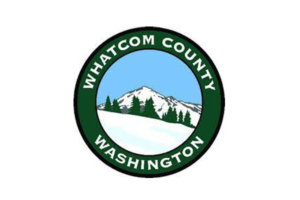As communities mature in their food systems work, they often recognize that they need a roadmap to guide their work more strategically. We’ve heard from communities big and small across the country with a common question: How do we know what policies and programs we should implement to strengthen our food system?
Food System Plans are a set of interconnected, forward-thinking activities that strengthen a community and regional food system through the creation and implementation of plans and policies. Planning brings structure and strategy to local food systems and sets the policy foundation for their growth.
So, how do you know if your community is ready? Here are a few questions to ask yourself:
- Do we have a diverse team of stakeholders ready to champion this work? Many communities have food policy councils or wellness coalitions that can be the conveners of these planning processes. The key here is to ensure that this stakeholder coalition represents key sectors in the food system – farmers, retailers, manufacturers, consumers, and nonprofit partners.
- Are we ready to center equity in our planning process? Traditional community planning processes have left out marginalized communities and people of color, and we know that systemic racism persists today in our food system. A strong food system planning process means working with all community members to create a shared vision for a food system that is just and inclusive. The American Planning Association has produced a Planning for Equity Policy Guide to help with this critical work.
- Do we have the support of our local elected officials? Formal plans like master plans and comprehensive plans are adopted by city and county councils, commissions, or boards. They then serve as official guiding documents for local government investment and policy change. You don’t need all of your local elected officials on board, or even a majority (yet!), but make sure you’ve met with them to share your vision for a food system plan. Be sure you can tell them how food system planning ties into their other goals as elected leaders, whether it’s addressing hunger or supporting economic development.
- Is there another planning effort we can connect to? Timing is everything here. Is your community about to launch a process of updating its comprehensive plan or conducting a community health assessment? These documents are traditionally reviewed and updated every 5-10 years. If yours are due for an update, consider adding a food system chapter or focus to an existing planning process that already has momentum and resources behind it. This may be simpler than creating a standalone food system plan, especially if you’re still trying to convince elected officials that this is worth working on.
If your answer to many of these questions is YES!, then contact us at New Venture Advisors.
We’ve had the privilege of working alongside food policy councils and coalitions setting intentional plans for their communities’ food systems. Our NVA planning process leverages our food system solution expertise and the local community expertise of these partners.
In fact, we just finished a Food System Master Plan for the City of Wichita and Sedgwick County, KS with multiple partners including the YMCA, Health and Wellness Coalition, and city and county staff. We are ready to help!
Additional Resources:
There are so many great food system planning resources to help you get started. Here are a few of our favorites:
-
- The American Planning Association provides tools, guides, and sample food system plans from across the country.
- The Growing Food Connections partnership highlights communities doing collaborative food system planning, and has some great webinars with real on-the-ground experiences from communities.
- Johns Hopkins Center for a Livable Future’s Food Policy Networks produced Framing the Future: a planning resource for food policy councils.
Image: Rawpixel.com / Shutterstock



